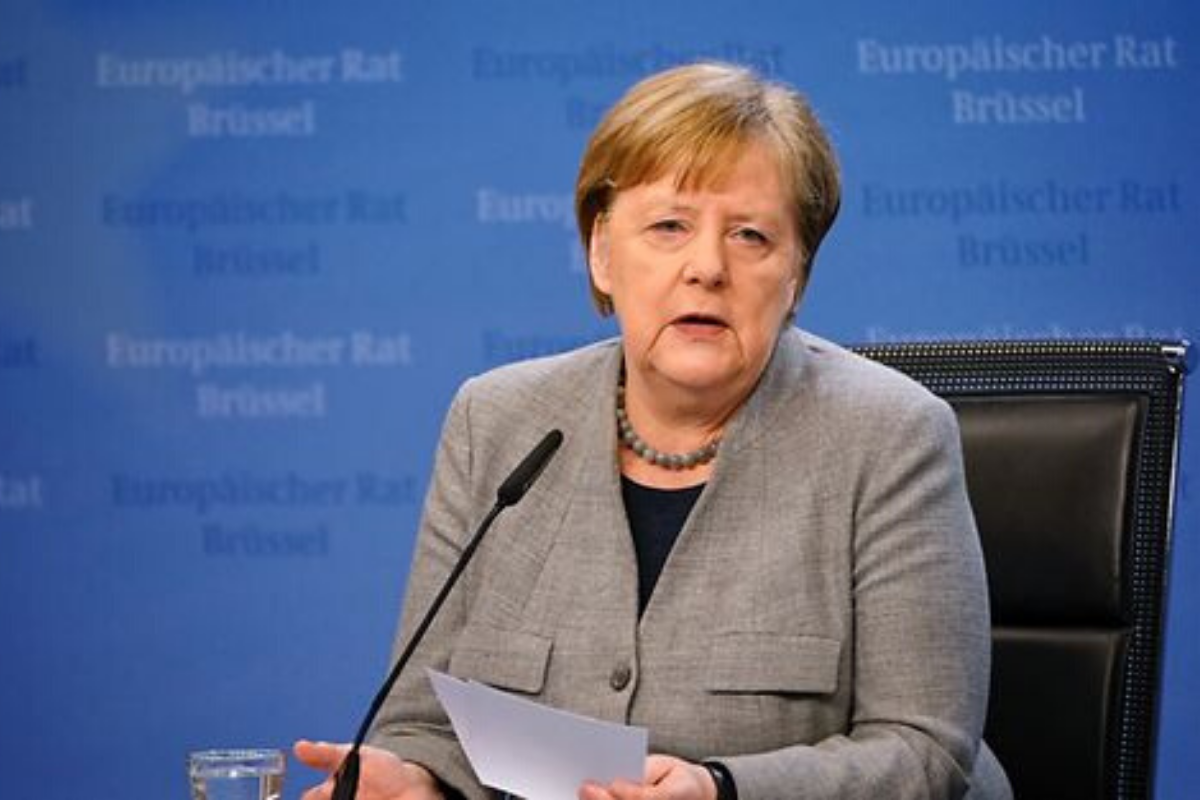
German Chancellor Angela Merkel said the coronavirus pandemic is not yet over. She added that the public will have to live with the virus “for a long time.”
"We are not living in the final phase of the pandemic, but still at the beginning," Merkel said about the spread of the coronavirus before the Germany’s Parliament, the Bundestag, on Thursday.
“We have won time,” Merkel added, based on Reuters translation. She pointed out that getting more time had been used to improve Germany’s healthcare system.
Germany cautiously began to ease its lockdown restrictions at the start of the week. Smaller retailers of under 800 square meters resume on Monday.
Businesses have to observe hygiene and social-distancing measures. Larger car dealerships, bike shops, and book shops can now operate.
Merkel’s comments reflect the caution in the government and a desire to loosen the lockdown slowly.
Germany’s economy may contract 7% in 2020, according to outlook by the International Monetary’s Fund for April. The economy may also rebound to expand 5.2% in 2021.
“Things will remain very hard for a long time,” Merkel said before lawmakers.
Germany reported more than 150,000 reported cases of the coronavirus, based on the data from Johns Hopkins University.
Meanwhile, the death rate in the country seems lower. It is currently at 5,315. The number of infected young adults, mass testing, contact tracing and a modernized health-care system contributed to the relatively low number of deaths.
The fatality data of Germany is far lower than the number of deaths in Italy by just over 25,000 or those in Spain which recorded 21,717 deaths.
Global economy
Meanwhile, the coronavirus pandemic in Europe has triggered old tensions when it comes to financial resources.
Southern European countries heavily affected by the virus, especially Spain and Italy, called for the euro zone to release joint debt to help economies recover from the damages brought by the pandemic. Meanwhile, richer nations like Germany and the Netherlands hesitate.
According to Merkel, Germany should prepare to pay more into the EU budget, however. “Our consultations today won’t yet be about nailing down details or deciding on the extent but one thing is already clear: In the spirit of solidarity, we should be prepared — over a limited period of time — to make very different, meaning much higher, contributions to the EU budget.”
The International Monetary Fund (IMF) said that the global economy loss due to coronavirus pandemic will likely turn out as the worst financial crisis since the Great Depression.
IMF suggests that the state of the global economy this year may not recover completely right away as governments around the world battle with the COVID-19 outbreak.
“It is very likely that this year the global economy will experience its worst recession since the Great Depression, surpassing that seen during the global financial crisis a decade ago,” Gita Gopinath, the IMF’s chief economist, said in the latest World Economic Outlook report.
“This is a crisis where the economic shock is something that is not exactly controlled by economic policy,” as it is not certain when the pandemic will end, Gopinath told CNBC.






